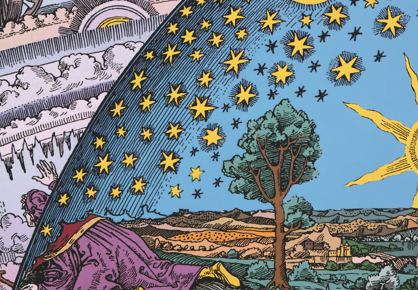
Imagine a deluge of scholarly works, all describing the symptoms of a disease—but offering no discussion of the deep-rooted factors that caused the outbreak. In recent years, as democracies have faced the growing phenomena of “Hollow Democracy” caused by democratic backsliding and rising populism, many scholars have devoted considerable effort to describing both the symptoms of deteriorating democracies and the circumstances exacerbating them.
Against the backdrop of this important research literature, which describes and analyzes a visible, lived reality, Ezrahi’s new volume commands special attention. It presents a unique perspective, inviting readers on a “journey into the depths” in search of the roots of democracy’s contemporary crisis.
Though independent of Ezrahi’s previous works on political theory, this volume concludes a trilogy that began with The Descent of Icarus (Harvard 1990) and continued with Imagined Democracies: Necessary Political Fictions (Cambridge 2012). The first book concentrated on the scientific revolution’s role in shaping modern democracy, the evolution of instrumental politics in the West, and the historical circumstances that foreshadowed the decline of both modern Enlightenment vision and democratic institutions. “Imagined Democracies” traced the crucial impact of shifting collective political imagination on the rise and fall of political regimes, highlighting its role in the genealogy of the modern partnership between science, culture and democracy up until its breakdown in the mid-twenties.
“Can Democracy Recover? The Roots of a Crisis” closes the trilogy by analyzing the political consequences of eroding the Nature-Culture dichotomy as modernity’s foundational cosmology, tracing The collapse of the five anchors that underpin democratic political imagination: the invention of the individual as a political agent, political causality, the formation of public facts, the crystallization of visibility and transparency norms, and the objectification of public policy through science, technology, economics, and law. The deterioration of these epistemological anchors of modern democracy has precipitated a paradigmatic shift in citizens’ political cognition and comprehension, consequently facilitating the emergence of populism as an autoimmune pathology of democracy. The book concludes with a speculative discourse on democracy’s uncharted future.
Today, as democracy and democratic values—particularly human dignity and freedom—face their most serious threat since the eve of World War II, glimmers of hope emerge. In Israel, Hungary, Poland, Russia, Turkey, and the United States, we witness the mobilization of broad cross-sections of society who, disillusioned with the myth that democracy is a given, are prepared to fight for it. These developments echo Ezrahi’s vision. Under the new, monistic cosmology of “HumaNature,” humanity experiences disillusionment not only with our ability to influence Nature (manifested primarily in the climate crisis and our mitigation efforts) but also with the political order itself.
Humanity now recognizes democracy as its own creation rather than a divine gift or immutable natural law. While democracy may be under threat, we retain the power to build and fortify it. Perhaps we are witnessing the end of democracy in its Enlightenment incarnation, but this need not signal the end of democracy itself. Indeed, Ezrahi teaches us that democracy can be saved through a moral-political epistemology of freedom—one liberated from naturalistic cosmology and instead nurtured by a new imaginary based on the monistic cosmology of “HumaNature.” Democracy exists in a constant state of becoming. As Ezrahi declares in his book’s conclusion, it remains a promise.
Latest Comments
Have your say!